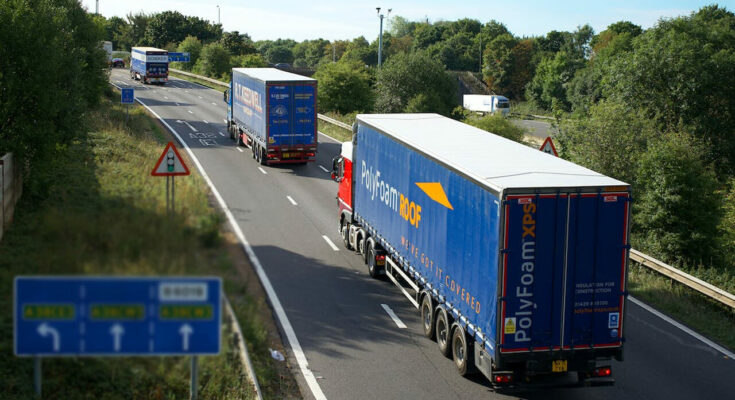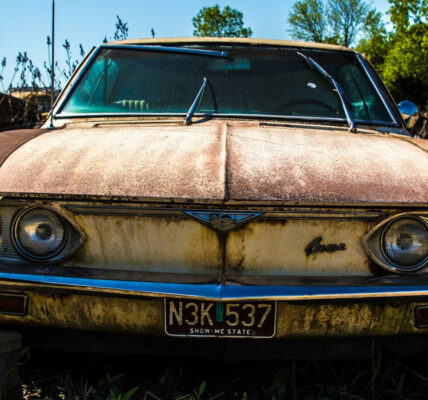In many ways, commercial trucks act as the backbone of the country. They keep the American economy running efficiently by ensuring that products reach the shelves for us to purchase. However, some trucks are responsible for carrying cargo that isn’t as benign as food products or household items.
In this article, we discuss some of the most dangerous truck cargo, ranging from explosives to radioactive materials. Keep in mind that if you’re hurt by a dangerous vehicle, it’s well worth your time to reach out to a truck accident lawyer in San Antonio for assistance.
Potential Hazards of Explosive Cargo
Explosive cargo is, obviously, dangerous by its very nature. When mishandled, explosives can cause serious or even fatal injuries. However, it is still necessary for items such as ammunition, fireworks, and industrial explosives to reach their final destination and this is often accomplished via truck. While most trucking companies do an excellent job of transporting their cargo safely, a stray pothole or sharp turn can cause unimaginable havoc.
Transporting volatile explosives is a delicate balance between efficiency and caution. Specialized trucks with shock-absorbing suspensions and blast-resistant compartments have become the vehicle of choice for ferrying explosive items. Drivers are expected to undergo rigorous training so that they are fully prepared to deliver their cargo to its destination untouched.
One of the elements that makes explosive cargo so worrisome is that the fallout of an accident is immense. An explosion can hurl metal debris in all directions and start fires, which puts everything and everyone around the container truck at risk. For that reason, regulations dictate specific shipping routes, limit cargo quantities, and demand meticulous documentation for every potentially dangerous shipment.
How Dangerous Are Flammable Liquids and Gasses?
While not quite in the same category of hazard as other explosives, flammable substances can also be very challenging to transport safely. A leak or collision can potentially cause a massive blaze when a truck is transporting a substance such as gasoline. To make matters worse, even a minor accident can create a vapor cloud that can be ignited into a chain reaction by an ill-timed spark.
Suggestion: 2025 Toyota Camry Review, Price, Release Date & All Top Specs
Due to the obvious risks of flammable materials, trucks carrying these volatile liquids are carefully regulated. The truck itself must be made of durable materials and follow a safe design that allows for the safe transport of deadly materials. Valves and seals are carefully designed to withstand immense pressure and drivers are trained to operate their vehicles with the utmost caution.
Radioactive Materials Can Be Deadly to All Forms of Life
Believe it or not, some radioactive materials are actually transported via truck. These materials are generally used in medicine, research and development, power generation, and the military. Shipping radioactive materials is highly regulated and restricted. Extremely dangerous shipments require controlled routes, notifications to local and state officials, and even a security presence in some cases. The cargo is transported in special packaging designed to withstand fire, accidents, and water.
Despite all of these precautions, things can still go wrong and cause a potentially catastrophic situation. Radioactive material can be incredibly dangerous to both people and the environment if there is a leak, spill, or explosion. If you witness any kind of accident involving a truck transporting radioactive materials, report the situation to 911 and get away from the area at once.
Corrosive Cargo
Not all dangerous cargos are explosive. Corrosive loads can be as dangerous as flammable or explosive substances, just for other reasons. On the outside, the containers for corrosive cargo might appear ordinary, but what lies within can cause gruesome injuries and environmental destruction. A leak or crack can release a liquid substance capable of melting through metal, causing chemical burns, and poisoning the environment.
Also Check: 11 Best Overland Vehicles 2024 – Quick Guide For Off-Road Lovers
Spilled acids can eat away at the asphalt, weakening infrastructure and creating hazardous potholes. Leaking alkalis can contaminate soil and water, poisoning ecosystems and threatening biodiversity. Even seemingly minor spills can cause respiratory problems and skin irritation. Direct exposure to caustic substances can cause life-changing or even deadly injuries.
To prevent accidents, Labeling and documentation are crucial. Shipping teams must understand the nature of what they’re transporting and what must be done should a leak or spill be discovered. Specialized containers, built with corrosion-resistant materials and equipped with leak-detection systems, should always be used to effectively contain dangerous materials.
Mitigating the Damage in the Event of an Accident
Even the most stringent safety measures can’t guarantee that every journey will be smooth. Accidents happen, and it’s crucial to immediately tackle the situation head-on as best as possible. Drivers, first responders, and law enforcement personnel should undergo specialized training to safely approach and contain a truck accident scene where dangerous materials are present.
By using their knowledge of the materials transported and emergency protocols, first responders can work to mitigate the damage and protect the community.
Stay Alert, Drive Cautiously: Sharing the Road with Hidden Threats
As we navigate our daily commutes, it’s easy to imagine that the road is a completely safe place. With a proper understanding of potentially dangerous cargo on the road, we can act to protect ourselves and our loved ones from harm. Remember that if you see any type of accident involving a dangerous truckload, report it immediately and get to a safe location. Never stay in the vicinity of a leaking, burning, or otherwise damaged truck.
We hope this article helps you stay safe from harm the next time you get behind the wheel.



















